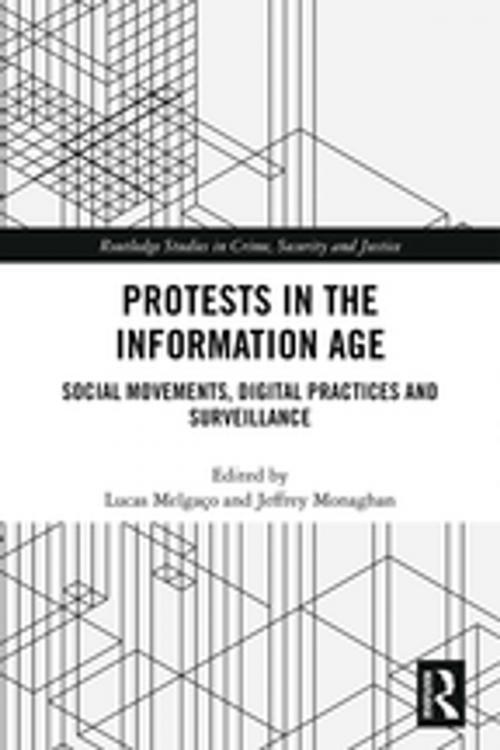Protests in the Information Age
Social Movements, Digital Practices and Surveillance
Nonfiction, Social & Cultural Studies, Social Science, Crimes & Criminals, Criminology| Author: | ISBN: | 9781351815420 | |
| Publisher: | Taylor and Francis | Publication: | March 9, 2018 |
| Imprint: | Routledge | Language: | English |
| Author: | |
| ISBN: | 9781351815420 |
| Publisher: | Taylor and Francis |
| Publication: | March 9, 2018 |
| Imprint: | Routledge |
| Language: | English |
Information and communication technologies have transformed the dynamics of contention in contemporary society. Social networks such as Facebook and Twitter, and devices such as smartphones have increasingly played a central role in facilitating and mobilizing social movements throughout different parts of the world. Concurrently, the same technologies have been taken up by public authorities (including security agencies and the police) and have been used as surveillance tools to monitor and suppress the activities of certain demonstrators.
This book explores the complex and contradictory relationships between communication and information technologies and social movements by drawing on different case studies from around the world. The contributions analyse how new communication and information technologies impact the way protests are carried out and controlled in the current information age. The authors focus on recent events that date from the Arab Spring onwards and pose questions regarding the future of protests, surveillance and digital landscapes.
Information and communication technologies have transformed the dynamics of contention in contemporary society. Social networks such as Facebook and Twitter, and devices such as smartphones have increasingly played a central role in facilitating and mobilizing social movements throughout different parts of the world. Concurrently, the same technologies have been taken up by public authorities (including security agencies and the police) and have been used as surveillance tools to monitor and suppress the activities of certain demonstrators.
This book explores the complex and contradictory relationships between communication and information technologies and social movements by drawing on different case studies from around the world. The contributions analyse how new communication and information technologies impact the way protests are carried out and controlled in the current information age. The authors focus on recent events that date from the Arab Spring onwards and pose questions regarding the future of protests, surveillance and digital landscapes.















